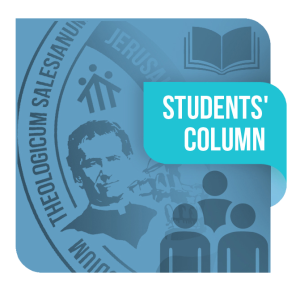From Apologetics to Phenomenology of Consciousness: Towards a promising perspective for Fundamental Theology
The main aim of Fundamental Theology is to investigate the event of revelation and the form of its credibility, thus providing a solid foundation for faith in Christ. As Pope Francis in Evangelii Gaudium says: “[…] (it) means an encounter between faith, reason and the sciences with a view to developing new approaches and arguments on the issue of credibility, a creative apologetics which would encourage greater openness to the Gospel on the part of all” (EG 132).
This discipline owes much of its theoretical apparatus to classical apologetics. The apologetics, thanks to its incessant work of reflection and argumentation, has allowed the maturation of a thought on God and revelation capable of resisting the pressing attacks that occurred from the 16th century. In the centuries that followed, the Western context saw philosophical thought polarize around the autonomy of reason (Kant, Hegel, Fichte...) and the affirmation of the scientific method as the sole criterion of truth. This has strongly challenged apologetics to justify its place among the sciences by constituting a credible epistemology for that context. Assisted by classical philosophy first and then scholasticism, apologetics built its own speculative apparatus that was able to demonstrate the reasonableness of faith and the authoritativeness of Christian revelation.
However, from the 20th century onwards, some authors began to point out that the defensive position of classical apologetics was becoming reductive, hence the need for a paradigmatic change, since the approach of the older paradigm is incompatible with the new worldview. One of the critical aspects of apologetics that I think is important to stress is the split between freedom and truth. In fact, truth, as understood by apologetics, follows a rigorous and reasonable process of argumentation in which the truth proposed demands acceptance by virtue of the seriousness of the analysis with which it is conducted. Truth in this view has the profile of imposition/necessity and not of persuasion/conviction.
From my personal point of view, Apologetics, in its development, had to chase its adversary onto its battlefield, using its own weapons.
Recent historical and cultural developments have highlighted several aspects that should be considered. I will mention four of them:
- The issue of the credibility of revelation follows a rational argumentation developed in an academic context, that requires an attunement with this kind of forma mentis to be approached.
- The advent of relativism and so-called «weak thought» on the socio-cultural level has challenged the concept of truth and its univocity.
- The growing hedonism and utilitarianism that contaminate society at every level are more interested in a useful than a reasonable God.
- The emergence of anti-reductionist theories on the philosophical level has called into question the scientific paradigm as the only certain method of investigating reality.
From these considerations, it can be deduced that a weakening of the context in which Apologetics was born and developed could constitute a weakening for it. In addition, I would add some questions.
Considering the many challenges that the current context poses to the church today, is it not appropriate to expand the concept of credibility?
When St Peter writes of “being ready to make a defense (apologia) to everyone who asks you to give an account (logos) for the hope that is in you” (1Pt 3:15), did he only mean learning a discourse about God and his revelation?
These questions arise spontaneously when I think back to an episode that happened to me several years ago. During an assembly, I listened to a young widow tell how the death of her husband, although it represented a very painful trial, was transformed over time into an experience of grace and radical conversion. This happened, thanks to encounters, people and events. To the point of arousing gratitude in her.
Faced with a fact of this kind, I ask myself: is that woman's faith to be considered credible? Is it reasonable?
I believe there is no doubt that a faith acquired through a personal encounter with Christ in such a dramatic event constitutes a greater defense for the faith of the individual than any systematic and coherent discourse learned. Indeed, where the demands of the human heart become more urgent (because of death, pain, happiness) faith and the encounter with the revealed God show all their power and reasonableness. They, therefore, become privileged places of persuasion, the Loci Theologici of each person's history.
This relevance to the heart of man, in my opinion, is the true bulwark of Christianity as well as being the matrix of its universality.
In this regard, I was struck by a perspective found in a text recommended to me by a confrere titled “Il Dio Capovolto” (The upside-down God) by Bruno Maggioni and Ezio Prato. This perspective implies another approach called Phenomenology of Consciousness.
Through this approach, the question of "analysis fidei" is understood differently. The latter is no longer considered as the analysis of the attributes and "ingredients" of faith but as a process that takes place within consciousness, identifying the fundamental structures that
support the genesis of faith.
I found it very interesting how, at the end of the text, man is presented as a “believing conscience” refers to the relationship that conscience has with the world and that is based on trust. We need only think of the number of acts of faith that make up our days. This relationship can access absolute truth thanks to what we can call 'historical symbolic evidence'. The symbol, indeed, is described as a detail that makes the whole meaning present. From this, “faith in something can only be implemented and justified on the basis of a symbol that persuasively anticipates the total meaning. [...] for the Christian faith the symbol is Jesus Christ.” Further reinforcing this perspective is the symbolic significance that certain gestures of Jesus take on in the Gospel accounts. The gestures of care and nurturing that Jesus performs in his public life are not exhausted in themselves but become the symbol through which the believing conscience accesses a total truth. Seen in these terms, the persuasiveness of this symbol is given by being a point of origin of credibility. From there, in fact, “its historical, existential, universal truth arises, not as additions to the center but as irradiations of the same.”
This truth is always new to each individual and is recognized and believed in the act of faith.
The authors of the text see the Phenomenology of Consciousness as a more promising perspective. In my opinion, it would also be worthwhile to seriously consider this perspective during the first cycle of theological studies. The relationship between man and God, understood and explored within this framework, could certainly be a valid tool in a pastoral context.
- Enrico Del Bel Belluz SDB
October 13, 2021


